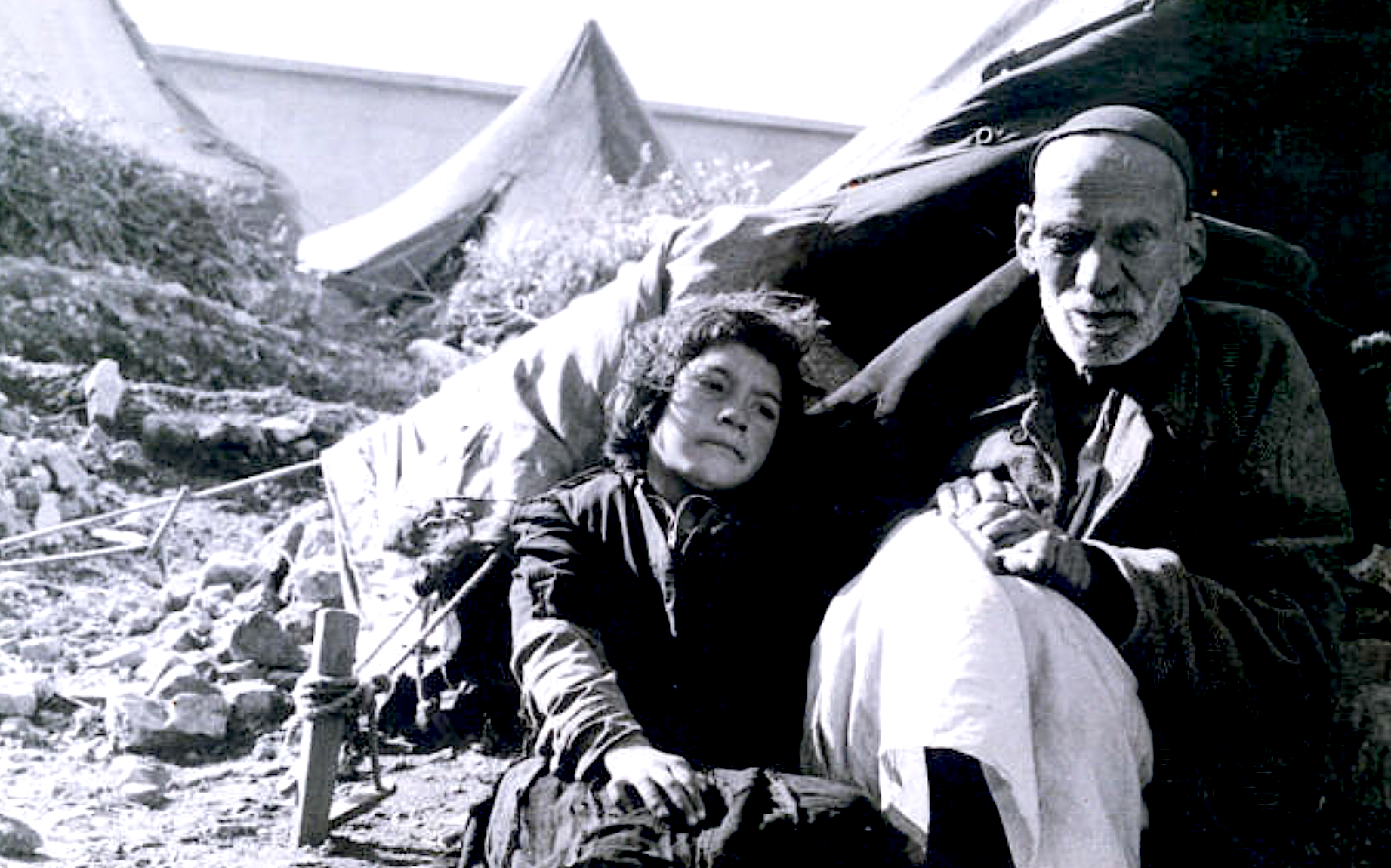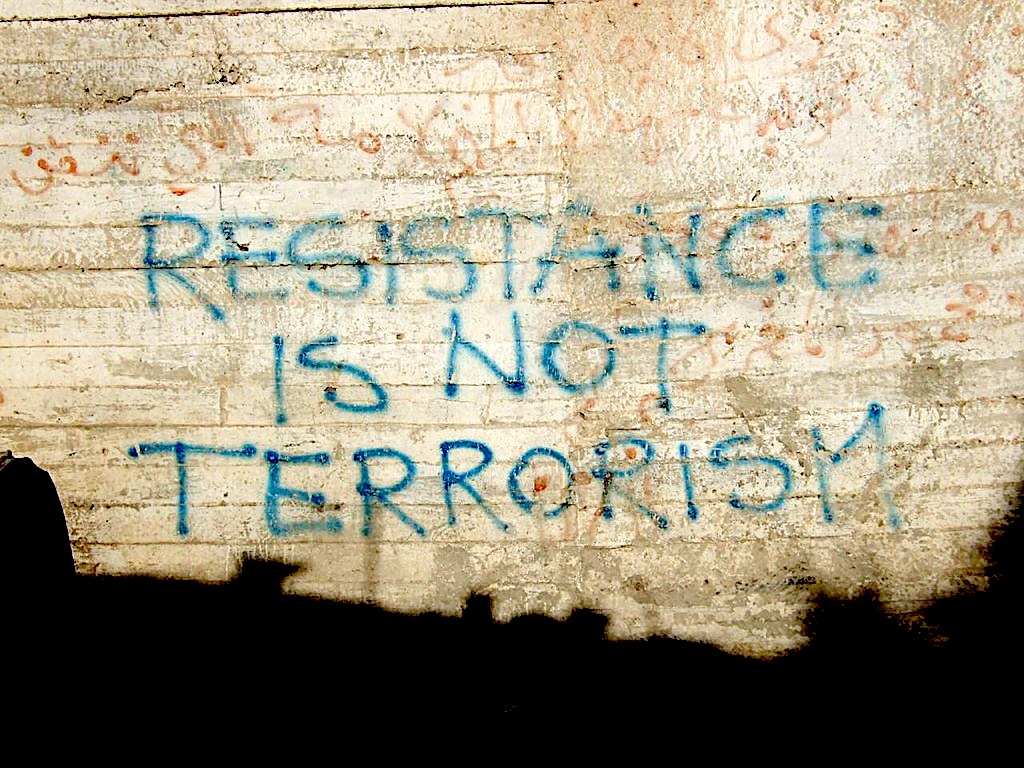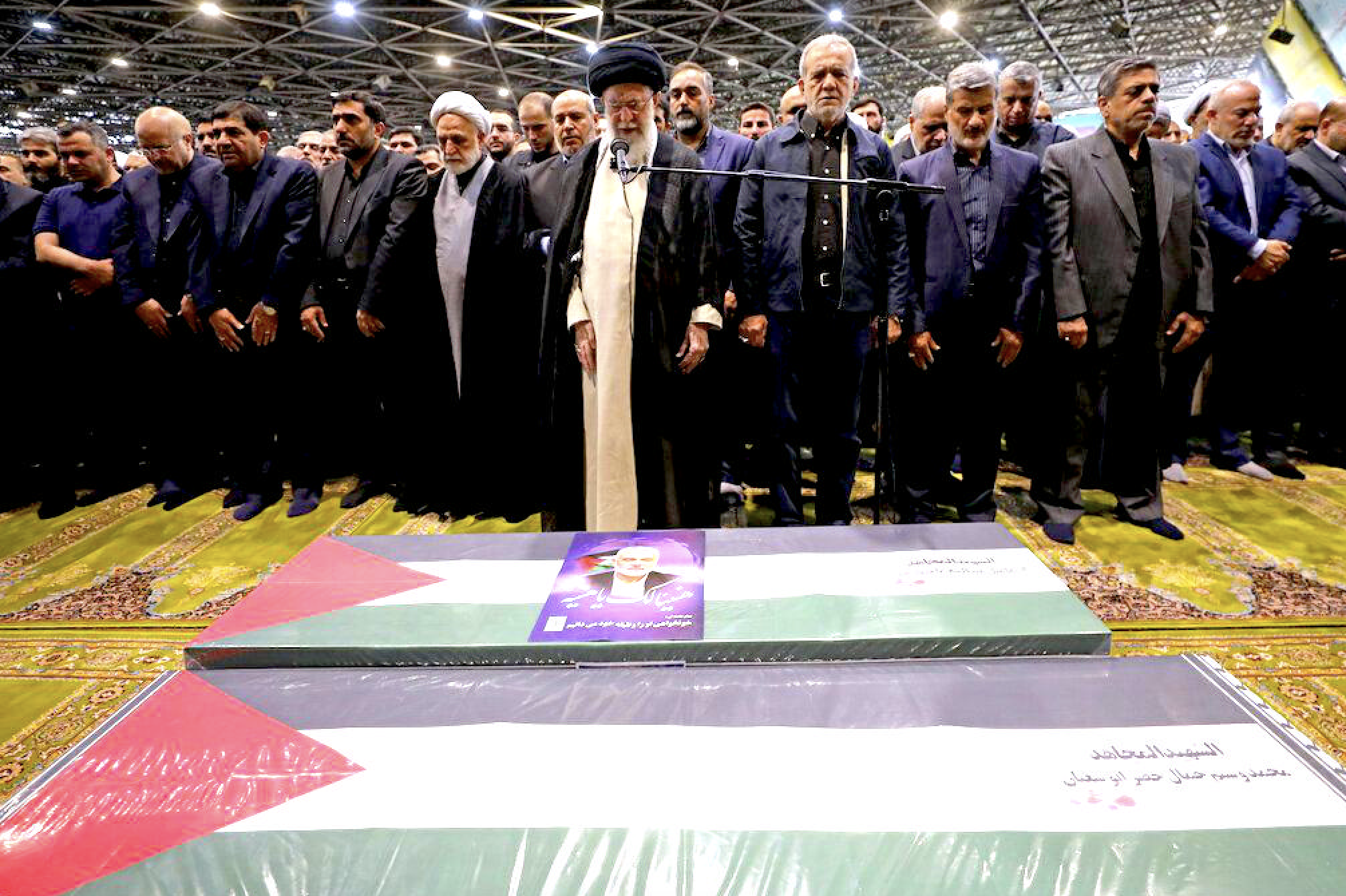It is illogical to describe Israel’s actions in Gaza over the last 10 months as defensive, writes M. Reza Behnam.

Smoke and flames billow after Israeli forces struck a high-rise tower in Gaza City, Oct. 7, 2023. (Palestinian News & Information Agency, Wafa, in contract with APAimages, CC BY-SA 3.0)
By M. Reza Behnam
Z-Network
Despite the countless atrocities, assassinations and violations of humanitarian and international law, American politicians and the corporate media recite ad infinitum the accepted talking point that Israel has a “right to defend itself.” From their distorted perspective, only the aggressor deserves that prerogative.
Israel’s claim to self-defense is never questioned. Although it has one of the strongest modern militaries (581 aircraft, including F-15, F-16 and advanced stealth F-35 fighter jets); possesses the latest air defense systems; stockpiles 400 nuclear weapons with delivery systems; and has the United States, the world’s largest military power, standing ready to protect it, we are to believe that Israel is in physical danger.
On the other hand, the Palestinians, most in need of defense, are denied that right. They are told to accept colonized lives in the Gaza concentration camp, to accept marginalization, injustice and humiliation forever; that they have no right to resist the Israeli apartheid regime.
And the United States and its Western proxies threaten the Islamic Republic of Iran, Hezbollah in Lebanon and others in the Palestinian Resistance for daring to challenge Israel’s genocidal war on Gaza.
Even though the Islamic Resistance Movement (Hamas), Palestinian Islamic Jihad and smaller groups have no organized modern military, no air force, navy, air defense systems, nuclear weapons and no Western allies to defend them from Israeli terrorism, we are to believe that they are a threat.
In addition, the U.S.-Israeli narrative concerning Palestinians and their regional allies is rife with contradictions. The United States and Israel can choose their allies, while Iranians and Palestinians cannot without controversy.
Hardly the Victim

Sudden refugees forever, Palestine Nakba 1948. (Hanini, CC BY 3.0, Wikimedia Commons)
Israel is hardly the victim it portrays itself to be.
Its colonial expansion through the use of force began when it destroyed over 500 Palestinian towns and violently dispossessed over 750,000 Palestinians to establish an exclusive Jewish state in 1948.
It broadened with the 1967 Arab-Israel War, which led to Israel’s occupation of Palestinian land in the Gaza Strip and West Bank, including East Jerusalem, as well as control over the Egyptian Sinai Peninsula and Syrian Golan Heights.
The historical record reveals that for many years prior to 1967 Israel intended to seize the West Bank and Golan Heights. There was no military threat or safety concerns. The war was fought out of a desire to demonstrate Israel’s power and to achieve territorial gains.
Israel continues to seize Palestinian land and escalate expansion. Currently, as many as 700,000 Jewish “settlers” live in 150 illegal “settlements” and 128 outposts across occupied Palestine.
The mainstreamed popular Israeli myth of a small David defending against an Arab Goliath was shattered by the Gaza prison break of Oct. 7. A fantasy President Joe Biden and many in the American political class grew up on and continue to embrace.
The reality of Israel’s brutal siege of Gaza and the West Bank has also forced many Jews in the diaspora to recognize that Israel has not been their defender. To the contrary, the mixing of Judaism with Zionism — religion and bellicose nationalism — has fueled anti-Semitism.
Law Breaker

Israeli military forces arriving to demolish the Palestinian community of Khirbet Ein Karzaliyah on Jan. 8, 2014. (B’Tselem, CC BY 4.0, Wikimedia Commons)
To become a regional nuclear Goliath, Israel has violated countless international and humanitarian laws. Tel Aviv has yet to confront a law it has been willing to obey or a country’s sovereignty it felt compelled to respect.
The U.N. Charter of 1945 and the body of international law enshrined in its conventions, treaties and standards were created to govern relations and to usher in comity among nations, and to insure the horrors of the Second World War were never repeated.
The Charter, for example, strictly prohibits the acquisition of territory by force. Israel, however, began violating it soon after it proclaimed statehood and again in its preemptive 1967 War.
As a consequence of the Arab-Israel wars of 1948-49 and 1967, Israel permanently occupied the land it captured and has not allowed the Palestinians made refugees by the wars to return to Palestine and to their homes.
Occupation is by definition temporary until conditions are such that the territory can be returned to its original sovereign.
Flagrantly, Israel has violated one of the most important principles established under modern international law: an occupying power cannot, under any circumstances, acquire the right to annex or gain sovereignty over any territory under its occupation.
Furthermore, Article 49 of the Fourth Geneva Convention of 1949 states:
“The Occupying Power shall not deport or transfer parts of its own civilian population into the territory it occupies” and prohibits the “individual or mass forcible transfers, as well as deportation of protected persons from occupied territory.”
Significantly, two principles of international law regarding the use of force are especially important to weigh with regard to Oct. 7 and its aftermath.
The Right to Resist Includes Armed Struggle

Message on the walls of Deheisheh Refugee Camp in Bethlehem, 2006. (delayed gratification, Flickr, CC BY-NC-SA 2.0)
For Palestinians, international law recognizes that resistance, by all available means, including armed struggle, is a legitimate right for people under illegal occupation (Additional Protocol 1 to the 1977 Geneva Conventions).
For Israel, when an occupation is in place, as it is in the West Bank and Gaza, the occupier (Israel) cannot use militarized force in response to an armed attack; it can only use police force to restore order (1949 Geneva Convention, respecting the Laws and Customs of War on Land).
Essentially, international law leaves little doubt — Israel is an illegal occupant. The International Court of Justice on July 19 said just that. In its advisory opinion it ruled that Israel should end its illegal occupation and that “settlers” be removed from all of occupied Palestine.
Repeated United Nations condemnations, reports and resolutions have not stopped Israel from defying the rules and norms which other members of the international community are bound to observe.
The United States and its proxies have enabled it to become the rogue state it is today. And in the process, they have made Israel’s genocidal war in Gaza possible.
Oddly, while Israel escalates its violent behavior in the Middle East, the United States has warned Iran and other Palestinian allies not to escalate.
In addition, in August, Washington approved an additional $20 billion in new arms transfers (F-15 fighter jets, missiles, tens of thousands of mortar and tank shells); thereby, giving Israel the green light to continue its war in Gaza and to regional escalation.
In this and in many other actions, the American administration has made its defense of Israel unequivocal.

Iran’s Supreme Leader Ali Khamenei praying at the funeral for Hamas leader Ismail Haniyeh on Aug. 1. (Khamenei.ir, Wikimedia Commons, CC BY 4.0)
Since the assassination late last month of Hezbollah and Hamas leaders in Beirut and Tehran, Israel has anticipated a retaliatory attack. To mitigate that, the United States initiated on Aug. 15 renewed negotiations for a ceasefire.
To sabotage the talks, Israel escalated the war by bombing Gazans sheltering in ruined schools and living in tents. Provocatively, Israeli ultranationalists marched on the Al-Aqsa Mosque courtyard, reserved for Muslim worship, in occupied Al-Quds (Jerusalem).
Israeli Prime Minister Benjamin Netanyahu, as he has done for 20 years, continues to relentlessly pursue his dream of dragging the United States into a war against Iran.
Interestingly, Iran, through its Mission to the United Nations, has stated that it would support a ceasefire recognized by Hamas. It has, however, also maintained its legitimate right to respond to the assassination of Ismail Haniyeh, chairman of Hamas’ Political Bureau, and to Israel’s violation of its national security and sovereignty.
Iran is also keenly aware that if the assassination on its soil is left unanswered, it simply “whets the appetite of the Israeli occupation for more transgressions and aggression.”
It is illogical to describe Israel’s actions in Gaza over the last 10 months as defensive. Unfortunately, that is what many in the American corridors of power and Israeli-backed media have been doing.
The narrative has finally begun to shift. Voices have grown increasingly louder demanding that Palestinians have a right to defend themselves, to resist occupation and to seek liberation.
The worn-out “defense” trope used to protect Israel no longer persuades. It is time for it to be jettisoned.
Reza Behnam is a political scientist specializing in the history, politics and governments of the Middle East.
This article is from Z-Network.
The views expressed are solely those of the author and may or may not reflect those of Consortium News.

At some point, the reality of Zionism — its strategy and complete disregard for international law will have to be rectified globally; it has been justified for too many decades.
This morning I awakened with just this same thought: This is Israel defending itself?
All I have to say now is Zionism speaks: If we can’t have this land, no one can and no one will.
Christian Zionists echo: Let us bring the end of the world together so Jesus can return. Not ever acknowledging the possibility that the second coming of Jesus is possible in every heart.
Armageddon leaves the land void of life. We’re inching closer and closer.
I’ve seen some journalists ask some pointed questions of Matt Miller at his press conferences, but I’ve never seen one ask him how the U.S. can square genocide with international law. I know Miller plays dumb to every question, but surely he can’t explain away the fundamentals of international law…?
thank you for reminding us of historic facts.
and of the [white] west’s merciless, deadly
double-standardry.
Classic Orwell double speak here.
We are the major sponsors of mass slaughter of innocent people who have been caged in a open air prison for generations by our policies.We then support the claim of “the right of self defence’ to commit genocide upon those prisoners when they object .
The right of self defencence ?……gimma me a break.
The unspeakable cruelty of Israeli foreign policy/genocide cannot be shouted down by that country’s well-financed PR as long as we have cogent voices like Mr Behnam’s to speak the discomfiting truth to the world. Thank you.
Plaudits to Israel for embracing the Final Solution.
Following in the Nazi’s footsteps. A great account of the first “final solution” is a book by Laurence Rees entitled: “Auschwitz – The Nazis and the ‘final solution'”. I guess the only difference is, that the Nazis had to transport their victims in order to genocide them.
Very interesting take on the current genocide being prosecuted by Israel with the help of some very suspect leadership from the U.S. Government..
I will have to agree with your Final Solution analogy of the current blood bath taking place in Gaza. I condemn the leadership of Israel and that suspect leadership of the US for their actions though.
I hope your comment was meant to be sarcastic.
Just curious I guess.
Well-argued article. Thanks
The US can’t say much since we were defending ourselves as we took over our country. Then after 911 we began defending ourselves all over the world with shock and awe. Probably due to changing the War Department to Defensive Department to proclaim that the best offense is the best defense. Plus monotheism has been at war with the devil in the details of world society. Maybe god doesn’t even know who started it.
As always, there are worthy victims and unworthy victims depending on the US led empire’s global strategic interests. Palestinians are unworthy, Ukrainians are worthy. We’re not supposed to notice the contradictions. What a sick twisted system we live under. Free Palestine!
To free Palestine we would need to depose the fascist system which Jewish control of UK and US imposed on the Palastiansin circa 1948. The good news though is that the American Empire is crumbling financially and in its militarily power.
Correction – it’s not Jewish control, it’s Zionist control. Zionism isn’t limited just to extreme Judaism, it also has deep routes in extreme Christianity as well. Zionism is a colonial ideology.
Second Bob Martin’s comment. Thanks.
Excellent article, thank you.